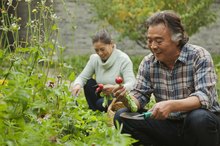Worried about salmonella? There's only one safe way to cook your eggs
More people are getting sick from the frightening salmonella outbreak that prompted a massive recall of eggs. So if you’re worried about your eggs making you sick, here is the safest way to cook them.
First, you should know that any raw food of animal origin, such as eggs, meat or poultry as well as a variety of fruits and veggies, may carry the salmonella bacteria.
“The first step to preventing getting salmonellosis — the infection caused by salmonella — is to always first wash your hands when preparing food,” explains nutritionist and private cooking coach Jackie Newgent, RDN. The FDA specifies you should use “hot, soapy water before and after handling raw eggs and raw egg-containing foods.” For instance, if you touch an egg without washing your hands and then touch something else, such as a piece of toast, you could hypothetically contaminate the bread. So wash, wash, wash!
Newgent also suggests cooking eggs to a safe minimum internal temperature of 160 degrees if you are concerned about bacteria, using a thermometer to take their temperature. Basically, the more the egg is cooked, the safer you will be. “And be sure raw egg doesn’t come into contact with fresh foods,” she adds. The safest egg dishes include hard-boiled, scrambled and over-hard eggs as well as baked egg dishes like quiche, but there are specific cooking techniques she suggests for them.
For hard-boiled eggs: Add large eggs in a single layer to a saucepan and cover them with cold water by about an inch. Bring to a boil over high, cover, remove from heat and let stand for 12 to 13 minutes. Drain eggs, cool in ice water, then refrigerate. For the safest scrambled eggs, cook them over medium heat until there is no visible runniness on any part of the egg mixture.
If you prefer fried eggs, skip sunny-side-up and choose over-hard eggs as the safest preparation. Fry the eggs in a little butter or oil until the whites are fully set and the yolks are just firm; then flip eggs and cook until the yolks are “hard” to the touch. As for quiche, “Just insert a knife into the center and be sure it comes out clean … and take its temp!” she suggests.
In April the Centers for Disease Control and Prevention traced an ongoing outbreak of salmonella to Rose Acre Farms’ North Carolina farm, forcing the Indiana-based company to recall a staggering 206 million eggs. Since then a dozen more cases of the bacterial infection have been reported to the CDC, bringing the grand total to 35 cases across nine states.
The recalled eggs were distributed between January 11 and April 12 in at least nine states — Colorado, Florida, New Jersey, New York, North Carolina, Pennsylvania, South Carolina, Virginia and West Virginia. They were sold to restaurants as well as grocery chains where they were packaged under brand names that include Coburn Farms, Country Daybreak, Food Lion, Glenview, Great Value, Nelms, Sunshine Farms, Publix and Sunups.
Anyone who has suffered from salmonella (or any other type of bacterial poisoning, for that matter) knows that it’s not fun. While the symptoms — which include diarrhea, fever, abdominal cramps and vomiting — typically begin eight to 72 hours of after being exposed and clear up on their own within a few days, there isn’t that much you can do once you are hit with it except rest and drink plenty of water.
So whether there is a current salmonella outbreak or not, it’s always best to employ preventative measures by practicing good hygiene and thoroughly cooking your food. Trust us, you won’t regret it!
What Do YOU Think?
Have you ever contracted salmonella or any other bacterial food poisoning? Are you surprised that so many people have been infected in this latest outbreak? Will you be more careful with how you prepare and cook eggs from now on?
Related Articles
References
Writer Bio
Leah Groth is a writer and editor currently based in Philadelphia. She has covered topics such as entertainment, parenting, health & wellness for xoJane, Babble, Radar, Fit Pregnancy, Mommy Nearest, Living Healthy and PopDust.









